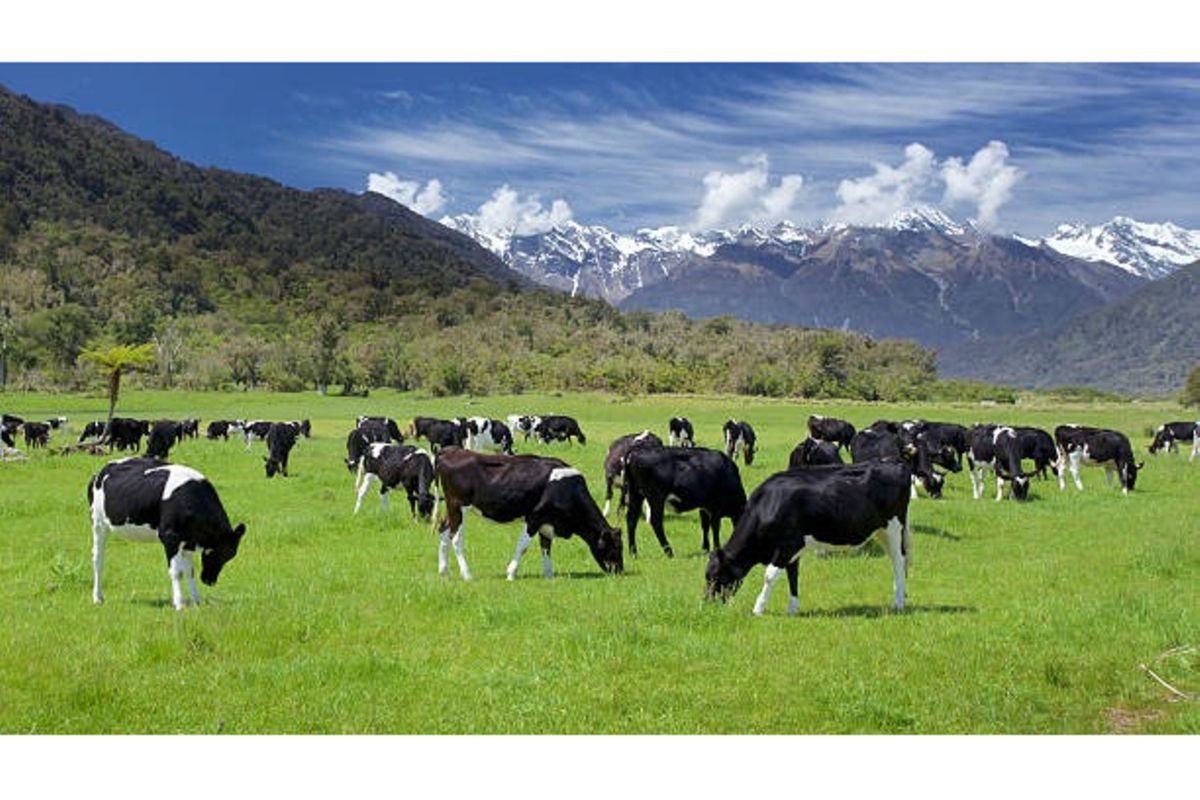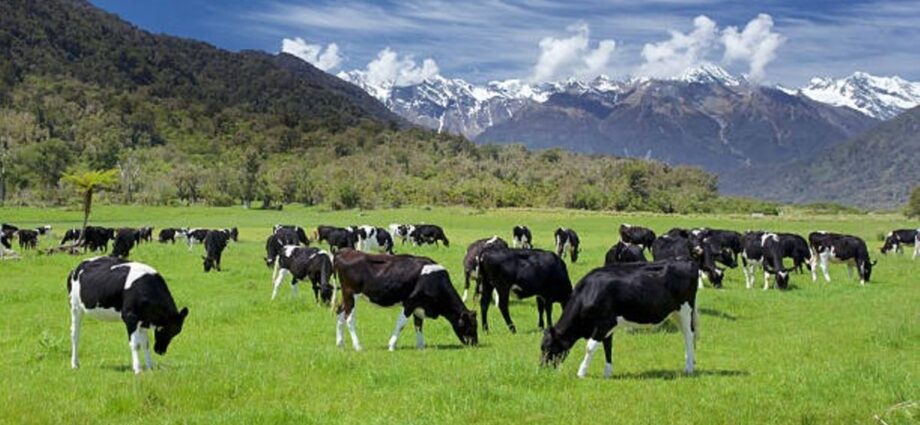
Dar es Salaam. Forage cultivation is seen as a promising commercial venture but inadequate investment, coupled with lack of affordable and quality forage seeds, hamper the sub-sectors’ adoption to improved commercial animal pasture farming.
Grazing experts define forage as an edible part of plants, other than separated grain, which provide feed for grazing animals or that can be harvested for feeding, hence increasing both the quality and quantity of pasture.
Speaking exclusively to The Citizen, an independent grazing expert Mkani Waziri explained that forage is usually consumed particularly by livestock (ruminants), and that it has enormous potential for income generation.
“Honestly, the industry seems to be forgotten, it is at its infant stage. There isn’t any push for its development, yet it is a fundamental input when we talk about productive livestock keeping, as pasture takes 50 – 70 percent of cost incurred by herdsmen,” he says.
Mr Waziri who doubles as board member of the Arusha based youth initiative ‘MiL – Animal Nutrition Innovation Centre, informed Seed Gold that forage may be preserved by drying it to produce hay, fermenting to produce silage, and grind it to produce powder.
“There is huge demand for forage in the country, imagine, when it comes to the size of livestock, Tanzania is only second to Ethiopia. Current figures suggest that the country has 33.9 million cattle, 24.5 million goats, 8.5 million sheep and 0.6 domestic ass, all grazing on natural pasture under communal grazing lands,” he said.
It is said that the country’s production of forage is mainly rainfed and is predominantly by large scale producers.
However, there were few small-scale producers with less than five acres of land allocated to forage production. This trend was promising as some individuals (small-scale) venture into commercial forage farming.
According to him, Tanzania needs at least 141.4 million tons of forage annually, yet production by the government owned pasture farms, which constitute between 90 – 95 percent of the country’s pasture production, produces only 16.8 million tons per annum.
“Obvious, animal feed is needed, for instance, I personally ventured into forage farming in 2017, for three consecutive years, we received forage orders from Saudi Arabia and the Comoros, but we failed to supply them. The demand is huge, there is a readily available market both locally and internationally,” Mr Waziri observed.
Moreover, the expert was concerned about the sub-sectors’ sustainability saying the availability of quality forage seed in the country was uncertain.
“When you find those seeds, you are not sure on whether they will germinate,” he says.
Mr Waziri explained that although the country has its own system of obtaining certified seed of other food and commercial crops, for the forage industry, things were a bit different as nothing of that sort existed.
“Tanzania certified forage seed doesn’t exist, you might purchase 10 kilos, yet its germination might be less than 5 percent to zero, and most of these seeds we cultivate are on exchange basis within practitioners’ circle,” he says stressing that it was hard to get quality certified forage seeds in the country.
Besides, he says Tanzania had fewer varieties of forage seeds, with seed companies like the Agriculture Seed Agency (ASA) producing various seed varieties of other crops after they have been developed by the Tanzania Agricultural Research Institute (TARI) and certified by the Tanzania Official Seed Certification (TOSCI).
He says, it was a different story when it comes to forage seeds as there was no such a system of verifying and certifying its quality despite various researches done by the Tanzania Livestock Research Institute (TALIRI) on forage seeds.
Recalling Kenya and Ethiopia, the MiL board member explained that since 2012 when Kenya started certifying forage seeds, the country has 20 plus varieties, whereas Ethiopia in 13 years, it had registered 70 certified seeds, yet Tanzania has none.
He therefore called on the country’s respective authorities to create an enabling environment that would pave the way for the availability of certified forage seeds.
“Our colleagues in Uganda have done so, there is no VAT for imported seeds, though a minimum of less than five percent is charged for clearance,” he says.
According to him, the country was charging VAT and clearing fees which was more than five percent, a move he says makes the product’s affordability a nightmare.
“For instance, imported pasture seeds charges ranges between Sh70,000 – Sh125,000 a kilo, this is a blow to small-scale farmers in the country,” he says.
He suggested that the country needed to invest on the creation of forage seed map, through which the private sector would take charge, which would in turn improve forage supply chains and increase availability, accessibility, and its affordability.
“We also need state-of-art laboratories and research institutions for the certification of quality pasture seeds. In fact, if we got such infrastructures, it is easier to attract more private sector’s investments,” he says.
Mr Waziri further pointed out that livestock were increasing so as the people, yet the land for pasture was diminishing due to the need for settlements and farmland.
On the other hand the grazing expert was of the view that professional extension service should be prioritised, as currently, the country has about 1,000 range management graduates from Sokoine University of Agriculture (Sua) who were still not taken on board by local authorities.
“The government should officially recognise the fact that commercial forage production needs to be developed, thus investing in professional related extension service. You don’t expect an animal scientist to have knowledge on how to grow Juncao or Napier grass,” he rhetorically observed.
Moreover, a current study dubbed ‘Forage Seed System in Tanzania- A Review Report’ conducted by Mr David Ngunga, an Animal Scientist, and Mr Solomon Mwendia, a Kenyan researcher, seem to have similar opinion as it indicates that Tanzania’s forage seed production was largely at an informal level, thus needing a push.
“The formal forage production system in Tanzania is weak with limited involvement of the private sector for sustainability. Seed production is mainly conducted by the public sector, mostly government farms and research institutions with limited forage species,” reads part of the study.
The report, therefore suggests for a platform that will bring together relevant private and public sector actors to jointly address the current challenges and potential development of the forage seed sector which was vital for the sector to flourish.
In a recent presentations this year, the director of grazing land and animal feed resources at the ministry of Livestock and Fisheries Dr Asimwe Rwiguza acknowledged the fact that more private sector’s involvement in the forage seed production was vital.
“We want farmers to engage in commercial forage production, this would help the country to get rid of traditional pasturing of moving from one place to another,” she said adding that the move will also add value to the livestock sector.
According to her, the ministry will continue to allocate land for forage production. She says although the government was set to increase forage seed production, government’s institution capacity for producing pasture seeds and forage was still low compared to the current demand.
She says low production capacity was attributed to low investment, inadequate supply of improved pasture seeds, lack of equipment and machinery.
coupled with high operating costs.
She therefore called on the private sector to get involved in producing enough forage seeds for the country’s demand.
According to her, an average pasture seed production in the country for consecutive five years from 2017/2018 to 2021/2022 was about 4,028.2 tons which is less than the amount required to meet the demand for improving forage production.
But Mr Reuben Ngailo, from government owned Vikuge Pasture Seed Farm, was one time quoted as saying: “Vikuge which is a 515- hectare farm, but production is done on 325 hectares.”
According to him, by March this year, Vikuge had managed to harvest 212 Kg of forage seed which were distributed to only 8 farmers around Coast region, Dar es Salaam and Dodoma.
Commenting on, Ms Neema Mhando, a farmer, was of the view that Vikuge statistics was a vivid example of how unavailability of forage seeds hamper the development of the sector.
“Vikuge is one of the only two government owned pasture seed farms, more investment is needed if we are to develop and benefit from forage cultivation.”














